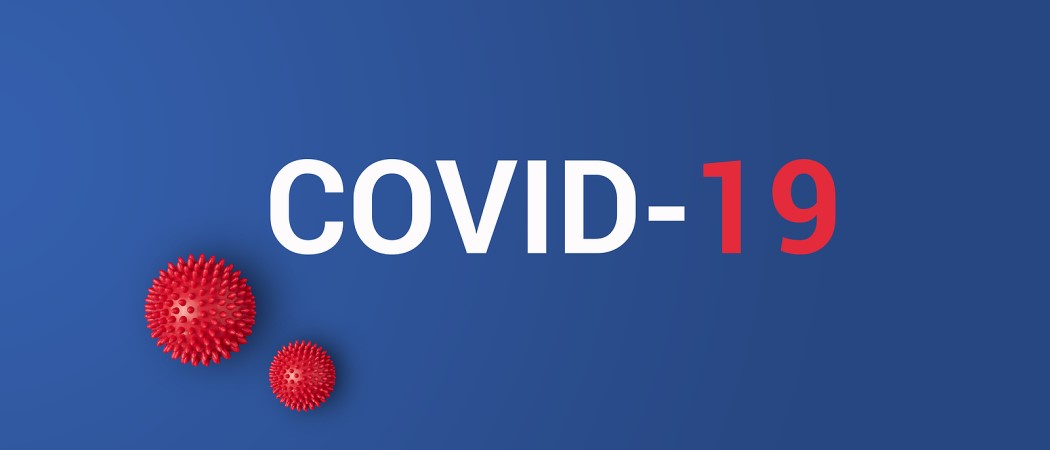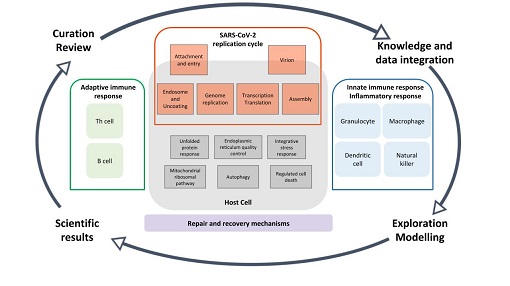This blog has been archived. A new one has been set up at this link.

Peter Piot, the Belgian scientist who co-discovered the Ebola virus in 1976, has been appointed special adviser on COVID-19 to the president of the European Commission, Ursula von der Leyen. Piot, director of the London School of Hygiene & Tropical Medicine, will inform the commission’s efforts to support and steer research and innovation to tackle the pandemic. He is also a member of the COVID-19 scientific advisory panel that provides the commission with recommendations on responding to the crisis, including policy measures for addressing its long-term consequences.
Israeli minister of defence Naftali Bennet announced the Israel Institute for Biological Research has developed an antibody that can neutralise the SARS-CoV-2 virus. The antibody formula is being patented and the institute is looking for commercial partners to take the research forward.
Ten Greek universities and research centres are joining forces in a €2.48 million government-funded epidemiological research programme to trace the evolution of the infection across the country. The study will involve extensive testing for the virus, antibody detection, viral genome sequencing, and analysis of the host genetics of coronavirus patients, to try and understand what makes some people more susceptible to developing severe symptoms. The money comes from the Greek Ministry of Development and Investment. In addition to this national research project, Greece pledged €3 million for the global coronavirus research programme in the international pledging conference held by the European Commission on Monday.
Researchers at Northwestern University have developed an algorithm that can predict if published research is likely to be replicable, providing a surrogate for whether study conclusions are valid. They say this will make it easier for scientists and policymakers to evaluate COVID-19 research papers, many of which are appearing as preprints without going through peer review. Details of the algorithm are described in a paper, ‘Estimating the Deep-Replicability of Scientific Findings Using Human and Machine Intelligence,’ published in the Proceedings of the National Academy of Sciences this week.
A study funded by the University of Surrey and the London School of Economics is to assess the impacts of the COVID-19 pandemic on wellbeing and mental health across the globe, investigating the effects of the different approaches to lockdown taken by different governments. Data gathering is underway in the form of a survey inviting people 18 years and over, across 30 countries, to take part. Results are due at the end of the year, providing evidence-based guidance for government policy makers working to address mental health and wellbeing issues, during and after the COVID-19 crisis. Complete the survey at this link: https://lse.eu.qualtrics.com/jfe/form/SV_e5NpJduSmxXydE1
The UK COVID-19 Genomics consortium is to collaborate with the newly formed Canadian COVID Genomics Network (CanCOGeN) as it launches a national sequencing network to monitor the development of the pandemic. The two will share knowledge, lessons learned and protocols, supporting their national efforts in coordinating the work of healthcare, public, private and academic organisations, in sequencing and analysing the spread and evolution of the SARS-CoV-2 virus and how it affects patients.
COG-UK, set up in March with £20 million of government funding, is supporting two key genomic projects, sequencing the virus to understand how it works and is evolving and analysing the genomes of patients infected with the virus to look for genetic variants that influence how they respond to the infection. To date more than 10,500 virus sequences from UK COVID-19 patients have been upload to the consortium’s website.
CanCOGeN was set up in April with C$40 million of government funding to coordinate data sharing and analysis across Canada. It will oversee the sequencing of genomes of up to 150,000 viral samples and 10,000 patients, to inform clinical and public health strategies.
Several drugs approved for treating hepatitis C viral infection have been identified as potential treatments for COVID-19 infections using the MOGON II supercomputer at the University of Mainz, which is one of the most powerful computers in the world. The researchers simulated the way in which 42,000 different compounds listed in open databases bind to certain proteins of SARS-CoV-2, inhibiting the virus from infecting human cells. After making more than 30 billion single calculations, over two months, they found that four hepatitis C drugs bind SARS-CoV-2 very strongly and may therefore be able to prevent infection.
Researchers at the University of Luxembourg are coordinating an international collaboration to build an online COVID-19 disease map incorporating all current knowledge on the virus-host interaction mechanisms, to support research and improve understanding of the disease.
In an article in the journal Nature Scientific Data, they present the project and call for contributions. Currently, 162 contributors from 25 countries are participating, extracting and assembling data from the existing literature and the fast-growing number of COVID-19 publications.
The disease map will provide a graphical, interactive representation of the disease mechanisms and a computational resource for analyses and disease modelling, allowing clinicians, virologists and immunologists to collaborate with data scientists and computational biologists, for precise formulation of models and accurate data interpretation.

The World Intellectual Property Office has launched a tool to track COVID-19 related changes to intellectual property policy. In response to the pandemic, many national and regional intellectual property offices are implementing measures to assist clients, for example, by extending time or grace periods for fee payments. The COVID-19 IP Policy Tracker will log all these initiatives, helping stakeholders navigate changes implemented by patent and trademark offices as they adjust their operations in the light of the COVID-19 pandemic.
The Academic Resources Platform for COVID-19 (ARC) will match Swiss laboratory requests for critical equipment, reagents, and other resources with supply offered by Swiss academic groups.
The platform will facilitate timely distribution of essential equipment and ensure an adequate number of tests is carried out daily.
The requests are managed by Spiez Laboratory, a division of the Federal Office for Civil Protection, appointed for this task by the Swiss Federal Government.

 A unique international forum for public research organisations and companies to connect their external engagement with strategic interests around their R&D system.
A unique international forum for public research organisations and companies to connect their external engagement with strategic interests around their R&D system.